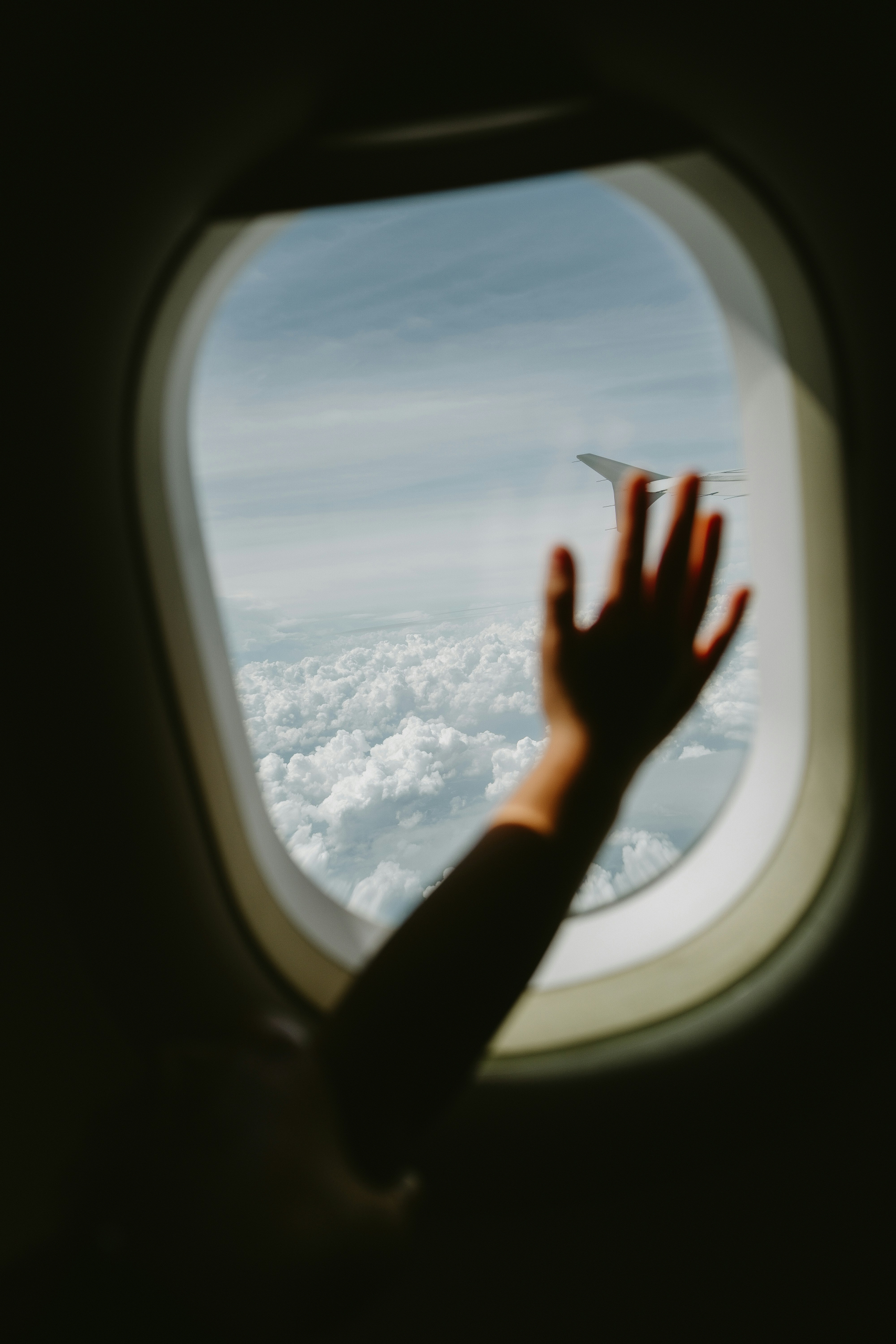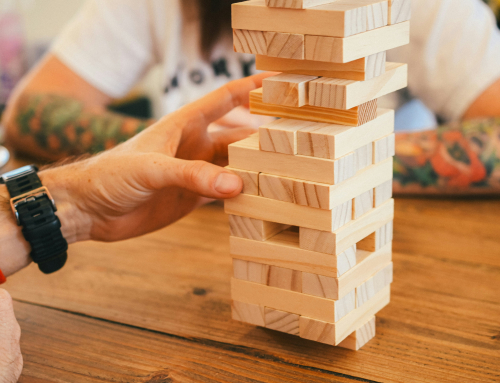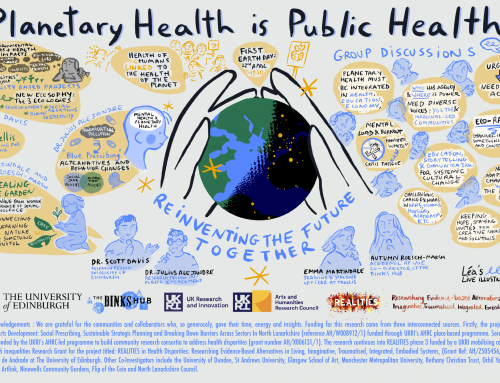By Kata Cots Pettit
30.06.2025…
Part 1: The Fire
In the frosty month of January, I returned to Edinburgh for a visit after fifteen years since I had lived there. I attended ECQI2025 hosted this year by the Centre for Creative Relational Inquiry and the University of Edinburgh. While I was present at ECQI2025, a rush of fire was overtaking my family friends’ Altadena, California home. They had lived there since 1989.
On my first day in Edinburgh, before the Altadena and Pacific Palisades fires, I attended a REALITIES workshop with Dr. Marisa de Andrade on producing research through magical realism as advocacy for policymaking that impacts well-being in communities in practice. From that day forward, I have been holding this question: What comes first: culture or policy?
How does culture impact policy? And how does policy impact culture?
Culture manifests, at times unwittingly, in how we live. When culture’s absence is felt, its presence is known. The cultural tapestries we embody in life are perhaps the argument for our deepest humanity. I am not the first to suggest this.
Yet, policy cannot or does not always protect cultural intangibles.
In Altadena, my friends’ home nourished me and a whole community through wildflower annual summer gardens, fruit trees, darling, gorgeous nooks for tea behind the bush, California sunsets on wooden swings, and a bright indigo, turquoise art studio, a hut where quilted monkeys and silhouette sketches were formed: the invaluable vestiges of living.
By the end of the week at ECQI, my friends’ home became ash.
Shortly after, in February 2025, I traveled to Los Angeles with my family.
On a Sunday, we had a slow lunch with our friends. We sat together at the table in the Airbnb that was now their home. I returned two pop-up books that they had gifted to my infant son, inherited from their now-adult daughters. These are the only two remaining from their collection of their daughters’ books. A summer floral dress I once admired was also returned and is now among the only remaining articles of my friend’s clothing. What good is policy without friends or when community is lost?
Part 2: Death
While at ECQI, I facilitated a session with Dr. Marisa de Andrade. In this session, participants were invited to embody the nature of their own deaths while relating to deep time.
The central questions that we engaged with were: how can we relate through our bodies to our own deaths as indefinite? In the context of death, how are our bodies situated as the many possible manifestations of atoms and particles in deep time? What form do we take when we die?
These questions are not irrelevant to the policies shaping our present reality: Will we burn to ash in a climate crisis? Or will a bomb sever us to pieces? Will we die under a burning sun? These realities still resist becoming embodied as knowledge until we, ourselves, are situated in the context of the death itself.
Yet, how then is the knowledge of death held? How can the knowledge be carried by the witnesses of our bodies-whomever they may be? This is perhaps a place where embodied knowledge folds into a boundary, which is beyond our knowing. How then can we as living, breathing bodies stay with embodied unknowing?
In a way, even as I am writing this, the fires have diverted me away from researching the question of embodying my own deep time-death reality and the policies and cultures that shape our communities.
Sometimes, I have been too tired to hold these questions. The attention that it requires to let myself fall into the bodily space of unknowing is a reckoning I cannot always breathe into; although, it is a knowledge that I carry somewhere…
There.
Maybe.
Simultaneously, Indigenous onto-epistemologies teach us that ancestral knowledge of body events are held within our present, living bodies. And I know I carry a dance within me that teaches me something about the flow and rhythm of my bodily universe.
Meanwhile, perhaps it is also the Alltags of my body that keeps me tired. Alltags is a German word for one’s daily routine, with a colloquial connotation of ‘must-do’ tasks that pull one in. I moonlight as a tour manager for Irish high school students, a job that begin shortly after ECQI. I also kept my other freelance job, pushing groundwork for policies in a dance institution in Berlin aimed at broader community access to the arts and increased diversity and equity.
I question how to not “sell-out” as a tour manager while seeking means to continue to uphold access to culture without succumbing to the burden of this capitalist system that tells me my survival rests solely on my individual effort. Amid all these cliches, I am still feeding my family while I internally struggle to not reduce myself to embodying the precarious mode of capitalist survival. How can we resist policies embedded in our daily lives?
Part 3: Community
On the same Sunday of our slow lunch in Los Angeles, the Alternativ für Deutschland (AFD), Germany’s party with neo-Nazi ties, won 21% of the German parliament. As a German resident, I cannot vote in these elections, but I am one of the 25% of the legal immigrant population living in Germany. I am easily German-passing. But fears of whether my Brown partner could be openly attacked on the residential streets of our Berlin home are triggered by the vote.
We stayed only four days in LA. After the US elections in late November 2024, I thought that I was being paranoid when I was planning how to travel to the United States and Mexico to visit my family with my Mexican partner and my child who is a Mexican and American citizen. My thought was that my Brown husband could be detained at the US border if we try to carry on with our lives as they were before.
Before living in Berlin, we had lived in the border city of Tijuana, Mexico. It was normal for us, and is still normal for many, to frequently cross the US/Mexico land border – often more than once a month. My partner has had a legally obtained, routinely approved ten-year tourist visa to the United States. It just expired. We will not visit the US as a family for a long time now. I was not wrong about the arbitrary decision-making of the United States Immigration and Customs (ICE) officials under President Trump, who thrives on chaotic executive orders and unofficial policies. Based on what is happening right now, it is a logical assumption that visiting Los Angeles again soon could lead to a bureaucratic nightmare of a violation of my Mexican husband’s human rights. And even while my son is an American citizen, precedence has also shown that children are not off limits. Many families are experiencing this now.
As part of our US/Mexico trip, I flew alone to visit my grandmother in Arizona. My son and partner stayed in Tijuana. The weekend in Arizona with my grandmother was warm and joyous. Cactuses were in bloom, and creosote scents soaked the air as the rain fell after many months of drought. My child and partner’s absences were felt. I mourned the familial connection of my grandmother playing with my son. How does policy or the rhetorical absence of policy shift our intimate relations with the cultures we create and the communities that we are a part of?
Part 4: Touring Horror
I am meant to be outside…perhaps.
I am at a fairytale theme park called Efteling in the Netherlands, waiting for the Irish students to have their fun. The genocide in Gaza distracts me. I am not present where I am. It is absurd to be anywhere.
A counter reality holds up the glass walls that I see through a screen-a colorful artifice of horror.
A roller coaster descends into blunt force trauma as a grey cloud of debris overtakes the falling bodies. The splash to earth becomes sand, rubble, and the bodies disappear. Now they are covered, so they are no longer there.
The fantastical is the powerful image held in my mind. I am too overwhelmed to truly ‘see’ the images of burned children and their screams as I idly watch, and their small sheaths of being are pulled back, destroyed through torturous flames of indignity before anything could be understood, teaching only that life is to be understood through pain.
Inane insanity. Obtuse cruelty. Uncaring ignominy.
Bring back compassion, solidarity, forgiveness.
Who is wishing they could wake up to a different world?
This desperate chaos runs so deep and pummels humanity from the core. Our guts are left a violent, unrecognizable heap. We lose all time. Our unfinished business is left unfinished. The devastating chaos shreds us apart from each other, from ourselves. We are left in pieces. Unfinished. Broken.
The fatigue is too much. My internal clock is tired, drained. And Palestine. The sorrow of the world. I cannot watch the children suffer a pain that they do not understand. I want to pull my body through the screen, protect them, save them from the pain and fear. My body is overwhelmed by the sorrow. Parenting is already a sorrowful act; how my body tenses and fills with anxiety when my own child suffers. It is like living in a wormhole of emotion. As he screams or cries, my body is projected simultaneously into the past-present-future. What of the parents who cannot save their children?
I am sorrowful. I am sorrowful. I am sorrowful. This is not the inherited earth I yearned for as a young person. Could I face today’s Palestinian children as adults and listen to their stories? My body is burning with sorrow, but could I look at their scars and not crumple and whither with shame before them? A flower not left to live.
Every human is important. Murder is for cowards who cannot face the vulnerability of making your humanity undeniable to your deepest self.
Epilogue
I have traveled much since the 8th European Congress of Qualitative Inquiry in Edinburgh. I have walked paths in my mind and touched devastating REALITIES. The year 2025 begin in Edinburgh looking through a two-way mirror. I hold all these embodied spaces up to a mirror of policy and culture on this 6-month journey. I am still figuring out how to do academic research, while not totally losing the moments of connection to my embodied space-knowledge. Somehow this writing has also become about writing community. Meanwhile, my vain imaginings take me to a reality close to death that I cannot totally comprehend as I fly to pick up another Irish student group in Barcelona and use my multiple passports and linguistic privileges to win our daily bread. How will policy catch up with our cultural connections and family ties? What policy will protect or destroy us? No amount of privilege can keep us from our own deaths.
Post-Mortem
11.09.2025…
In line with REALITIES (Researching Evidence-based Alternatives in Living, Imaginative, Traumatised, Integrated, Embodied Systems), I want to say that policy making is more important than ever. I want to express urgency in maintaining our cultural systems. I am tempted to fall into the binary of scientific analysis and rationalization to create a form-fitting model for witnessing a wrath of incomprehensible human suffering as a perfect policy driven solution for holding up culture. Yet the irrational chaos of our age, does not require a wholly a rational, intellectual appraisal. My call to those who are reading and seeking a platform for relationships through learning is this:
The well-being of others simply requires us to feel and know others as if they are us. A simple statement and a reiteration of what has been said and written in many cultures.
Yet it is not so simple. It is a challenge. Perhaps it is a challenge to the very foundations of what makes Academia a cultural and intellectual pursuit. Perhaps the leap is to be uncomfortable in ways that are unfamiliar to academics, and to all of us. Academics are likely prone to discomfort through hard work, teaching, writing etc., but when it comes to feeling and knowing through feeling, it is likely that this mode is often overridden by other paths to creating knowledge. Yet, humans are creative beings, and our capacity to create knowledge goes beyond simply rational and intellectual modes of understanding. What is being asked of you today? What can your environment tell you that perhaps you deny by rationalizing your mode of being? When whole communities are being destroyed, our questions must start with our own essential being. How did we get here? What is our accountability to each other? How do we take up space in ways that physically disallow others to exist? How do we take up space in ways that obliterate other possibilities for ways of existing? Our immaterial existence matters too. Perhaps this calls you to redefine your meaning of community. We use community as if the meaning universally applies. But what do we mean by community? Is it those who we know in proximity? Does it include the non-human? Is it those who share our practices? Must we speak the same language? Must we know each other by name or face? Surely in some ways the global network of social media through the somewhat shared culture of visibility-which still excludes many-challenges the notion of what a community can be. And still, does community equal accountability? Here I want to highlight how REALlTIES defines ‘relationships and research-practice-policy partnerships’ as or within communities (de Andrade 2024, 02). What does direct impact on communities really mean? I write from my own positionality in relation to the knowledge I have pieced together through my embodied experience. Let us fail and try again to do ‘deep, slow, immersive, critical thinking with [ourselves and others whom we may be uncomfortable with as] community members’ embodying ALTERNATIVE ways of being and thus becoming communities beyond our current understanding (de Andrade 2024, 03).
CITATION
de Andrade, Marisa and The REALITIES Consortium. 2024. “REALITIES in health disparities: Researching Evidence-based Alternatives in Living, Imaginative, Traumatised, Integrated, Embodied Systems”. Frontiers in Public Health 12:1391084. doi: 10.3389/fpubh.2024.1391084





